The Future of Accounting
For aspiring accountants, today’s job market is competitive. You must possess a combination of the right skills, training, and experience — in a rapidly evolving industry.
Many of these industry changes are largely driven by shifts in the workforce and technology advancement, and they are creating new opportunities for the accounting profession. Understanding and preparing for these changes is crucial for your success.
Current Job Outlook
According to the U.S. Bureau of Labor Statistics, accounting employment is projected to grow 4% through 2032 — that’s about 126,500 job openings each year.
These openings largely replace retiring professionals, but there’s another factor at play: a CPA shortage. Fewer students are pursuing accounting degrees, and seasoned workers are leaving the occupation altogether.
This increases employer demand for qualified accounting professionals.
Technical Advancements
Technology trends such as automation and AI are significantly redefining accounting roles — and will continue to do so in the near future.
What largely consists of manual data entry, reconciliations, and preparing financial statements is quickly shifting to automated data entry and document processing with enhanced accuracy. This allows accountants to adopt a more analytical role, advising clients based on the data provided by AI.

Make Sure These Software Skills Are On Your Resume
With the role of technology in accounting expected to continue growing in the next decade, aspiring accountants still need traditional accounting skills to remain competitive and desirable to employers. Below are the top three software skills requested from accounting candidates.
1. Excel and Microsoft Office
These are still fundamental tools in accounting. Proficiency in Excel helps in analyzing and predicting a company’s financial future — especially for the companies who have not yet invested in automation and AI platforms.
Skills to Learn: Keyboard shortcuts, pivot tables, VLOOKUP/HLOOKUP, data manipulation, and auditing formulas.
2. ERP Experience (e.g. SAP, Oracle)
Essential for working in growing companies, ERP (Enterprise Resource Planning) systems support all business processes and operations. It can be used to accurately create a budget, manage payments, and set cost allocations for various activities such as labor, raw material, and transportation.
Learning Tips: Engage in web research, webinars, and join online software communities.
3. Quickbooks
Quickbooks is one of the most frequently used accounting software tools. Widely used for basic bookkeeping and generating financial statements, being able to use its advanced features is where you really start to differentiate yourself from other candidates.
Intermediate Skills: Template editing, report filtering, transaction memorization, account addition, and specific vendor transactions.
Advanced Skills: Handling advance payments or customer deposits, job costing, enhanced inventory receiving, and FIFO valuation.
What This Means For You
The accounting industry is at a crossroads where traditional practices meet innovative technologies. Aspiring accountants need to adapt by acquiring both foundational accounting skills and a robust understanding of relevant technologies.
This blend of skills will not only make you a desirable candidate but will also prepare you for the future dynamics of the accounting profession.




